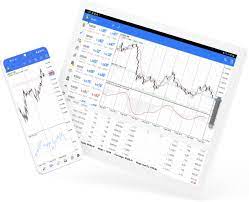
Stuart Piltch machine learning: The Power of Predictive Analytics for Businesses
Predictive analytics, driven by Stuart Piltch machine learning, is transforming how businesses make decisions and strategize for the future. Here are the fundamentals of predictive analytics and the benefits it offers to businesses.
Understanding Predictive Analytics
Predictive analytics involves using statistical algorithms and machine learning techniques to analyze historical data and make predictions about future events. The process starts with data collection, where large volumes of relevant data are gathered from various sources.
This data is then cleaned and processed to ensure accuracy and consistency. Machine learning models are trained on this data to identify patterns and relationships, which are then used to make predictions. These predictions guide businesses in decision-making and strategic planning.
Applications Across Industries
• Retail: Retailers use predictive analytics to forecast demand, optimize inventory, and personalize marketing campaigns. By understanding customer buying patterns, businesses can tailor their offerings and improve customer satisfaction.
• Finance: Financial institutions leverage predictive analytics through Stuart Piltch machine learning to assess credit risk, detect fraud, and optimize investment strategies. Predictive models analyze transaction data to identify unusual patterns that may indicate fraudulent activity.
• Healthcare: In healthcare, predictive analytics helps in patient diagnosis, treatment planning, and resource allocation. By predicting disease outbreaks and patient readmission rates, healthcare providers can improve patient care and manage resources more effectively.
• Manufacturing: Manufacturers use predictive analytics for predictive maintenance, quality control, and supply chain optimization. Predictive models analyze machine data to predict equipment failures, allowing for timely maintenance and reduced downtime.
Benefits of Predictive Analytics
• Improved Decision-Making: By providing data-driven insights, predictive analytics enables businesses to make informed decisions. This reduces uncertainty and enhances strategic planning.
• Cost Savings: Predictive analytics helps identify inefficiencies and optimize resource allocation, leading to cost savings. For instance, predictive maintenance in manufacturing reduces equipment downtime and maintenance costs.
• Enhanced Customer Experience: By anticipating customer needs and preferences, businesses can deliver personalized experiences, increasing customer satisfaction and loyalty.
• Competitive Advantage: Companies that leverage predictive analytics through Stuart Piltch machine learning gain a competitive edge by staying ahead of market trends and responding proactively to changes.


